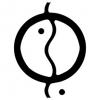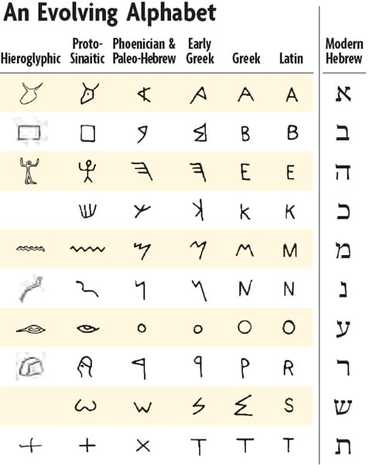General Chat / Conlang
-
 25-July 19
25-July 19
-

 SensualEthiopianPolice
Offline
SensualEthiopianPolice
Offline
Hey so I started work on a constructed language as part of a world building thing I'm doing. I figured I'd share it here cuz why not https://docs.google....dit?usp=sharing
But also if anyone else does this sorta of thing, it'd be neat to share them here -

 Liampie
Offline
Liampie
Offline
I tried making a language with a friend, when we were 13. Grammar was stolen from Latin and vocabulary was mostly foul words. 'Aruna' meant clitoris. What is clitoris in your language? Or is your language circumcised?
-

 Chocotopian
Offline
Chocotopian
Offline
Really interesting stuff, and it looks like you're focusing on laying down some clear rules - the single digit numbers all ending in "i" for example. It did make me smile though, imagining trying to read out a phone number in this language, but it does make sense. I also like the simplicity of "is" and "is not" by just adding an "m" and the combination of "is", "am" and "are" as one verb. Really highlights how unnecessarily complicated other languages are.
As for my own stuff, the most I've done is create different symbols for our alphabet. Each symbol somewhat represents an object beginning with that letter, e.g. "A" is a circle with a line upwards, like an apple, "B" is a circle with line down, like a balloon etc. From there, the symbols combine to make paired letters, like "CH" being a cake-hat symbol, and "STR" a salt-rabbit-tent.
-

 Liampie
Offline
Liampie
Offline
That's a clever system, Choco. Apple and balloon shaped letters? That's fun too! I wonder what a salt shaped letter looks like though.
-

 chorkiel
Offline
chorkiel
Offline
Languages are extremely fascinating. They're a big part of my studies and to me about the most interesting thing there is.
You're doing a good job coming up with grammar first, because that has a huge impact on etymology and thus words. Are you basing the language of existing ones or trying to completely make it up? If I recall correctly, your world was African(-inspired), right? Then it would suffice to take the history you gave your world into account. For example, the Inuit have many words for different types of snow instead of adjective+snow like we would do here. There are jungle tribes that have a different word for each type of cousin, because family has been prioritized so far by them. Such factors could be what sets your language apart. Another thing that fascinates me is how Italian, when translated directly to English seems more metaphorical.
I see you're also creating / going for a unique alphabet. Did you make that up or is it an existing one?. If you haven't already, I recommend you to look at the Proto-Sinaitic script and how that evolved to most western alphabets. This images gives a short example of that:

-

 SensualEthiopianPolice
Offline
SensualEthiopianPolice
Offline
Glad you guys like it so far. To answer some questions, it is largely based off of Amharic right now, although i want to keep a large discrepancy between the two, and the grammar takes more inspiration from Japanese. Namely the idea of adding a word at the end to make it a question and the subject often being implied are both somewhat lifted from Japanese. I haven't really gotten into many nouns yet, I wanted to get certain phrases in first since they would end up being the most common. As for the script, I'm writing my own abugida for it, but rn I'm using Ge'ez as a placeholder. I have seen that proto-sinaitic chart before, it's a huge help! Thanks for linking it.
Chocotopian, I really like what you did with your language, I think it's a lot like Mayan where they have multiple letters but they combine them into single symbols to represent multiple at once. Oddly enough, Mayan scribes took artistic liberties when writing, so each letter combination is unique to the scribe, making it insanely difficult to translate -

 SensualEthiopianPolice
Offline
SensualEthiopianPolice
Offline
So I made some updates to Hararriya:
-Either Kitenya or Welitya must be added to the end of a sentence in order to make it a question, but the two are not interchangeable. Kitenya is more "formal" while Welitya is considered more casual. Asking a question where you expect a factual answer, you'd use Kitenya, such as "Where is the bus stop?" or "How long until the movie?". If the question has a more contextual based answer, you use Welitya, like "How are you?" and "What drink are you getting?". In addition, there are some exceptions and special cases. While asking someone's name is factual, it is considered casual conversation and Welitya is perferred. However, asking the name of someone not in the conversation is factual and uses Kitenya.
-Objects of the sentence generally go first and are followed by Bir in a statement or command and Tir in a question. Subjects are followed by Ga.
-All objects are followed by bir or tir, but if the objects are compound, you use birsha or tirsha. However, this only applies if the objects are different concepts, and not a list of something. Going to a place with Tina and Greg still uses bir since Tina and Greg are both people you are going with. Going to a place with Tina in the afternoon warrants using birsha since you are going with Tina AND ALSO you are going in the afternoon.
-With nouns, all adjectives follow the noun with the exception of nouns related to chronology or time. Adjectives like new, old, next, previous, current, 32-year-old, etc. all go before the noun. -

 Chocotopian
Offline
Chocotopian
Offline
Good to see you continuing with this, particularly with more concrete rules. I'm wondering though, why did you decide to have two different words to denote a question? I suppose it helps determine the type of answer required, and in the case of your language, the tone too, but I would've considered "What drink are you getting?" to float in the grey area between contextual and factual (and I imagine many others would fall here as well). I guess what I'm asking is: what is the benefit of this elaboration?
-

 SensualEthiopianPolice
Offline
SensualEthiopianPolice
Offline
So my goal of this was to make a language that felt more realistic, rather than one that was easier to learn or more concise. Since I was basing a lot of the grammar off of Japanese and Korean, where there's a lot of context sensitive words that refer to the class or status of the person you're speaking to, I felt it might've been an interesting direction to go with it for the question word. It also broke up the monotony of always using 'Kitenya' at the end of every question. So there's no huge tangible benefit to it other than sometimes, unnecessary and confusing distinctions in languages tend to exist and I wanted to implement some of that. In the context of the language, it is effectively a formal and informal way of asking a question.Good to see you continuing with this, particularly with more concrete rules. I'm wondering though, why did you decide to have two different words to denote a question? I suppose it helps determine the type of answer required, and in the case of your language, the tone too, but I would've considered "What drink are you getting?" to float in the grey area between contextual and factual (and I imagine many others would fall here as well). I guess what I'm asking is: what is the benefit of this elaboration?
As for "What drink are you getting?", you would use 'Welitya' since the person you are asking presumably doesn't drink the same thing every time, and if you asked a different person, they would also possibly have a different answer. But really, it just boils down to formal and informal if that answers your question -

 SensualEthiopianPolice
Offline
SensualEthiopianPolice
Offline
Real quick, if anyone's still interested, I made a quick phrase pamphlet. There is still the full ongoing language, but this exists to understand simpler parts of speech, basic grammar rules, and useful phrases https://docs.google....dit?usp=sharing
-

 SensualEthiopianPolice
Offline
SensualEthiopianPolice
Offline
So I've created Nazremic Script for Hararriya. It's an abugida meaning that vowels are attached to consonants. For example, to write 'hello' you need to first write HL and then modify them by adding the soft e and o sounds.
Grammatically, there are no spaces like in pre-HRE English. However, dots are used to mark the ends of parts of the sentence. A single dot at about midlevel separates the object from the subject from the verb. The oral modifiers (Bir, Tir, Ga) are still written and are included in the segment which they denote (e.g. Object bir - Subject ga - Verb). Two asymmetrical dots are used for periods. Two vertical dots parallel to a line are used if the sentence is a question, although a period is always used at the end of the sentence. If two dots appear above 1 or 2 letters, that means those sounds are repeated. For example, 'Bebezi' means 'hot' but is written as 'Bezi' with two dots above the modified 'B'
 IMG_20191118_172753 (1).jpg (152.11KB)
IMG_20191118_172753 (1).jpg (152.11KB)
downloads: 19 -

 SensualEthiopianPolice
Offline
SensualEthiopianPolice
Offline
Quick addendum though: I might swap the ʉ and i modifiers since currently, i is harder to write but used more frequently than ʉ
-

 SensualEthiopianPolice
Offline
SensualEthiopianPolice
Offline
So some updates for anyone who is interested:
-I overhauled a big chunk of the language, mostly changing sentence order to Subject-Verb-Object and completely redoing verbs. An example here is how to conjugate 'Ale' which means 'To be'
 Untitled spreadsheet - Sheet1 (1).pdf (44.34KB)
Untitled spreadsheet - Sheet1 (1).pdf (44.34KB)
downloads: 3
-The prepositional case acts as a 'when/if' form of the verb such as in "When you go to the store, pick up almonds". You just have to add to future or past prefix to change whether you saying it happened or it will happen. There is also no negative form of the prepositional case.
-The imperative case is for commands and doesn't conjugate like most other cases, it only has the positive and negative forms.
-The interrogative case is for questions. If the sentence ends on an interrogative verb, the ending is -oy, otherwise, it's -o.
-The conjuct case is for when one subject does multiple verbs. The first verb has to be conjugated normally but then all verbs done by the same subject use the conjuct form. This can even continue throughout multiple sentences if the subject remains consistent and clear. -

 SensualEthiopianPolice
Offline
SensualEthiopianPolice
Offline
 Kola_Horashi_Ad_Large.png (7.72KB)
Kola_Horashi_Ad_Large.png (7.72KB)
downloads: 2
Want Cola? Grab a Horashi.
Horashi Kola is the best in Gembien. Blending imported Persian sugar with exotic spices, the taste of Horashi Kola is unmatched worldwide. Next time you're at the market, grab a Horashi Kola.
Romanized:
Gwalijo kola? Dablatta Horashi.
Kola Horashi kwola wondad Gembien. Kwonjerta mezhogar babiti Faswa nana kinagun. Iliwa kwonijai huhi yayini. Ikita sele dablatta Kola Horashi. -

 SensualEthiopianPolice
Offline
SensualEthiopianPolice
Offline
i like the pixel vibe. get a tattoo of it
I've been thinking of maybe doing that, i Just need to decide on a phrase first
 Tags
Tags
- No Tags
